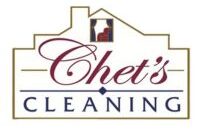It’s hard enough to keep your house clean without worrying that your cleaning supplies could be causing more harm than good. The average home contains 62 toxic substances – in everything from cleaning supplies to seemingly innocuous bath and body products. Though experts argue that the small amounts we’re exposed to aren’t harmful at all, no one knows how much harm constant exposure to these toxins in different combinations affects the body. Here’s what to watch for in your cleaning supplies, and ways that Chet’s cleaning service can help reduce your family’s exposure to pollutants.
1. Phthalates
Phthalates are found in most household cleaners and scented products, from air fresheners to dryer sheets. These toxins are endocrine disruptors, which have been linked to reduced sperm counts in men resulting from a significant hormone imbalance. Unfortunately, companies aren’t required to disclose whether phthalates are used in a product, but they’re often present if you see the word “fragrance” on a label. High-quality products that avoid phthalates usually list that they are phthalate-free, though. Switch out fragranced products for those guaranteed to be phthalate-free.
2. Triclosan
Triclosan is present in most cleaning products labeled “antibacterial.” The problem is, bacteria struggles to live even in aggressively antibacterial environments, and triclosan can promote the growth of drug-resistant bacteria. Triclosan also contaminates the environment; it has been found in high enough concentrations in rivers and streams to be toxic to algae. This might seem like a non-issue, but it’s enough to potentially disrupt an entire ecosystem. Triclosan is also a potential endocrine (hormone) disruptor. Choose simple cleaning supplies with short ingredients lists instead.
3. 2-Butoxyethanol
Present in most window cleaners, butoxyethanol gives the solvents their sweet smell. This chemical is listed by the EPA as causing sore throats when inhaled. High doses of 2-butoxyethanol are linked to pulmonary edema, kidney and liver damage and narcosis. Try diluted vinegar instead for sparkling windows and mirrors without paying the high price tag on your health.
4. Ammonia
Ammonia causes problems whether it contacts the skin or is inhaled. It’s a potent lung irritant, it’s highly toxic and it’s present in many household cleaners. People who experience long-term exposure to ammonia often develop bronchitis, asthma or other breathing problems. Try switching your ammonia-based products out for vodka; it polishes smooth surfaces effectively and evaporates to leave a mirror-smooth shine.
5. Chlorine
Many people use chlorine bleach or other chlorine-containing products to scrub toilet bowls, remove mildew and brighten whites in the laundry. Unfortunately, chlorine can be absorbed through the skin or inhaled; either can cause severe problems, especially for children or pets. Chlorine exposure tends to build up quickly, too and it’s often found in tap water. Baking soda and non-chlorine scrubbing powders like Bon Ami work great on toilet bowls and grout lines, and water filters on your sink can help cut down on the chlorine you drink every day.
Chet’s Cleaning’s commitment to high quality includes a commitment to using only the best, safest cleaning supplies on the market. If you have any questions or concerns about the products we use, feel free to contact us!
